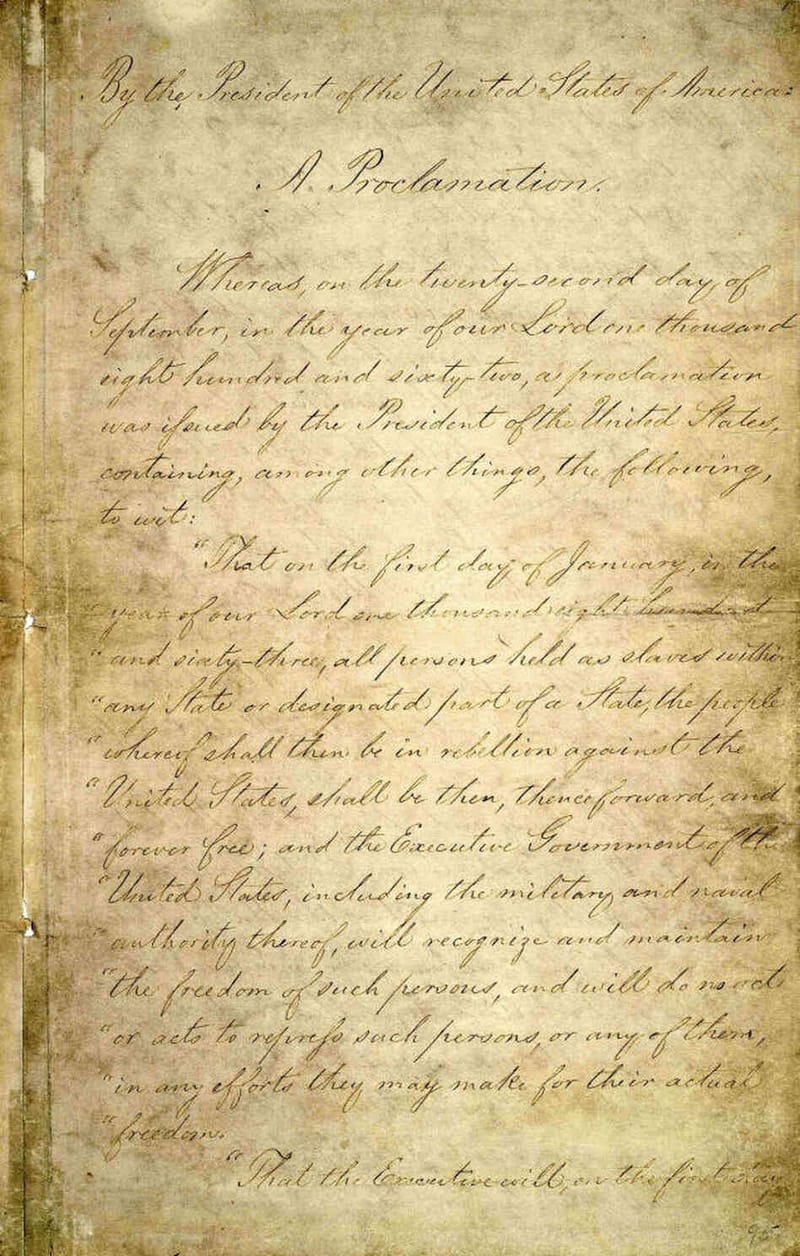On January 1, 1863, Lincoln issued the final Emancipation Proclamation.

The Emancipation Proclamation[2] was a presidential proclamation and executive order issued by United States President Abraham Lincoln on January 1, 1863, during the Civil War. The Proclamation changed the legal status of more than 3.5 million enslaved African Americans in the secessionist Confederate states from enslaved to free. As soon as a slave escaped the control of his or her owner, either by running away across Union lines or through the advance of federal troops, the person was permanently free. In addition, the Proclamation allowed for the recruitment of former slaves into the paid service of the United States armed forces.
On September 22, 1862, Lincoln issued the preliminary Emancipation Proclamation.[3] Its third paragraph reads:
That on the first day of January, in the year of our Lord, one thousand eight hundred and sixty-three, all persons held as slaves within any State or designated part of a State, the people whereof shall then be in rebellion against the United States, shall be then, thenceforward, and forever free; and the Executive Government of the United States, including the military and naval authority thereof, will recognize and maintain the freedom of such persons, and will do no act or acts to repress such persons, or any of them, in any efforts they may make for their actual freedom.